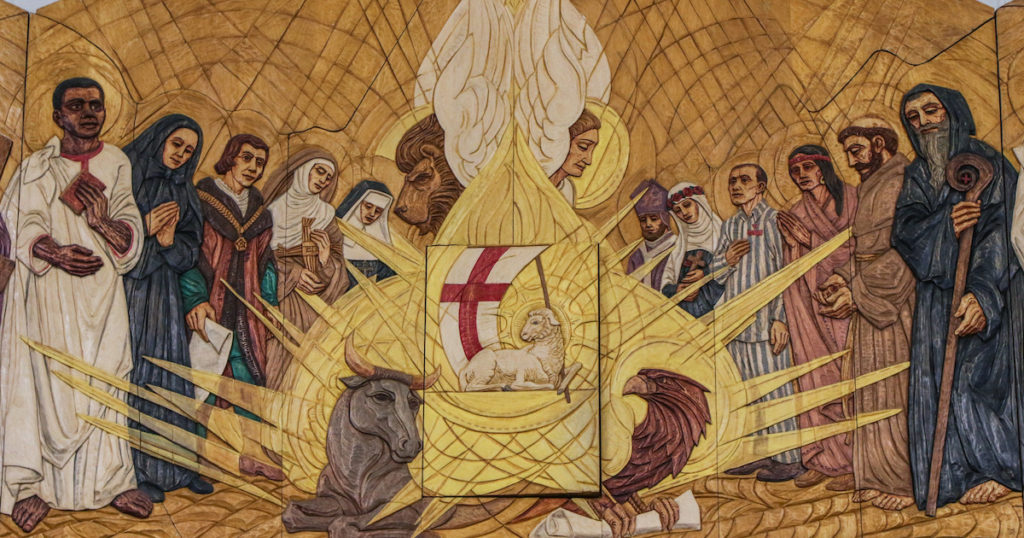How should churches think about the definition of marriage in civil law?
The U.S. House of Representatives having already voted to repeal the 1996 Defense of Marriage Act, defining marriage as man and woman, the U.S. Senate is now poised for a vote. The vote is mostly symbolic, as the 2015 Obergefell ruling by the U.S. Supreme Court discovered a constitutional right to marriage between persons of the same gender. But proponents claim the court, having overturned its 1973 Roe v. Wade assertion of a constitutional right to abortion, could now do so on marriage.
There is a tendency for some traditional Christians not engage this issue because it is viewed as politically settled. But The Church has timeless and universal teachings that transcend political seasons. The definition of marriage both inside the church and in wider society is such an issue.
Politicians by vocation pursue what is politically practical. Senators typically aligned with traditional Christian preferences so far have largely avoided substantive comment on legislatively affirming same-sex marriage. Polls indicate that perhaps two thirds of Americans marriage affirm same sex marriage.
Of course, The Church’s teachings on core doctrine do not shift to conform with preferences of a particular society. Its core doctrines, if true, are universally true, regardless of any poll. Core Christian teachings are never determined by popularity, they are not sustained by popularity, they do not shift in response to popularity, and they do not command respect if they surrender to or accommodate popularity.
In all its historic branches, The Church affirms that God made male and female, and that marriage is their unique union. This understanding of marriage as male and female of course is not unique to Christianity or biblical tradition. It is rooted organically in nature and has been common to all cultures across millennia. But Christianity has specifically refined marriage as a monogamous lifelong faithful union, in which male and female are equal, and which mirrors the eternal, cosmic union between Christ and His Church.
The Church has never regarded monogamous male-female marriage as specifically for The Church, like baptism or the eucharist. Marriage, like the family and government, is created by God for all cultures and times. Government does not have the authority to redefine marriage, since marriage predates government in God’s order of creation. Marriage as male and female was created for the protection and prosperity of all humanity. The Church adheres to its marriage teaching from divine obligation and in service to the good of all humanity.
So The Church is not at liberty to abandon its marriage teaching in reaction to American public opinion in 2022 or at any other time and place. Doing so would betray its highest calling to reveal and mirror God’s love to the world. The U.S. Congress will do what it will according to its contemporary political calculations. These calculations play no role in The Church’s permanent treasury of teachings.
American Christians are tempted to surrender The Church’s permanent treasury of teachings when they are difficult, embarrassing or seem irrelevant. What if public opinion defies or mocks The Church’s teachings? No matter. Public opinion has often across millennia rejected The Church, but The Church and its teachings outlast passing public opinion.
What seems permanent in earthly politics or public opinion often is not. Very few in 1973 when the U.S. Supreme Court discovered a constitutional right to abortion expected that ruling to be overturned half a century later. The court was in sync with growing public opinion. America’s two largest states, with support from Republican governors (Reagan and Rockefeller), had already legalized abortion. Other states were following. Both political parties were largely pro-choice. The debate was ending.
In response, the Roman Catholic Church did not retreat from its teaching about abortion. Already declining Mainline Protestant denominations had adopted pro-abortion rights stances starting in the 1960s. Emerging and growing Evangelical churches eventually aligned with Catholics and the historic Christian stance. The pro-life movement began with unlikely prospects. Yet with support from The Church, it prevailed.
We do not know what will happen with American public opinion and the definition of marriage in the future. A new generation may emerge that reflects with sadness on the retreat of traditional marriage and accompanying family structure. Every generation reacts at least in part against the preferences of the earlier generation.
No matter what happens with marriage in U.S. civil law, Christian teaching, which reflects the eternal union of Christ and His Church, will not change.






Comment by Rev. Paul T. Stallsworth on July 30, 2022 at 11:49 am
Excellent article, Mark. What the Word of God (written, incarnate, and proclaimed) declares, the Church teaches and practices. The Church is not at liberty to do what it pleases or to do what pleases the world/culture/society.
Comment by Joan Sibbald.. on July 31, 2022 at 3:46 pm
Excellent article, Mark Tooley, and equally excellent response, Paul T. Stallsworth!
Comment by Anthony on July 31, 2022 at 4:09 pm
Contemporary American social liberalism has turned out to be an unmitigated, abject disaster. And, contemporary liberal social public policy has been throwing fuel on this fire for decades. Eventually the chickens come home to roost. Public policy on marriage is but one these major disasters. Rev Garry Ingraham of Transforming Congregations sums up where we have artived in 2022:
“As I listen to the loud clamor, confusion, and frenetic noise of culture, I hear a common refrain and theme of shame. Unfortunately, it is not proper and appropriate guilt about something we’ve done wrong, but rather a toxic shame that falsely labels being human or being the “wrong kind” of human as “sin”. The masses are taught and molded in a myriad of ways within the halls of “higher” education, social media, the business environment, and popular media:
-humans are a parasite on the planet
-unless you’re a feminized man, you’re toxic
-if you’re a healthy, typical boy, you’re toxic
-if you’re a woman who values the life of the unborn, you’re a misogynist
-if you’re a woman who values a man who leads his family well, you’re a self-hater
-because of your skin color, you’re either perpetually a victim or racist
-if you’re an orthodox Christian, you’re in league with patriarchy and a misogynist
-your sex was “assigned” to you at birth, and the body has no bearing on gender
-love requires celebration of all things LGBTQ+
-a lack of full celebration of all forms of LGBTQ+ identity and behavior = hate
-speech and words of disagreement with LGBTQ+ are actual violence
-silence is violence.”
Comment by John Kenyon on August 4, 2022 at 6:58 pm
Another sophomoric post by the Beav. Ever read the OT?
Comment by Daniel J on August 10, 2022 at 8:49 am
While I concur that the term ‘marriage’ is universally unique to the union of a man and woman, the argument that it falls into the column of unalterable church teaching falls flat. A generation or two ago divorce was as intolerable as gay marriage is today to the theology of the church because the scriptural mandates were clear: ‘Any man who marries a woman who is divorced commits adultery;’ ‘if a man desires to be an overseer of the church he must be the husband of one wife.’ Yet today, our pulpits (even those churches which exclude gays from ministry), have allowed divorcees to minister.
In the New Testament the role of women is clearly defined: they are not to be in authority over men in any church setting, they are not to address the church body from a position of authority. Yet how many churches now have women for pastors, standing before large congregations, holding authority roles that were forbidden in the New Testament? We now say these are ‘cultural adaptations’ while clinging desperately to the ideal of scriptural inerrancy. But who gets to decide which standards of the church are immutable and which can be flexed, generation by generation? My answer is, ‘always the next generation.’ They will decide what doctrines of the church must remain and which can be adjusted to the reality of our times. This has been going on for two millennia and will continue until Jesus returns. He knew this when He reassured his overwhelmed disciples with the promise, “It is good for you that I’m going away because when I go the Holy Spirit will come and He will lead you into all truth.” Jesus didn’t say, “You’ll be fine because once the canon of the New Testament is complete it’ll provide the perfect roadmap for you to follow for the next two thousand years.” He knew times would change, values must be adapted to reality. What wouldn’t change was the inner voice of the Spirit guiding the church day by day in its quest for truth balanced with love. At least that was Jesus’ hope. He apparently had a few doubts about how that might work out because He also asked the rhetorical question, “When the Son of Man returns will He find faith on the earth?” Lately, I’ve been asking that question too.
There is very little said throughout the Bible regarding same-sex relationships. In fact, the term ‘homosexual’ didn’t exist until the 19th Century yet now it has been added to the fabric of the sacred texts of the New Testament. How did we allow this change? Was it really bearing honest witness to the texts, or were we fudging the line to accommodate our 20th Century cultural preferences?
Far more is said in the NT about gluttony, or untruthfulness, bearing false witness, and a lack of love toward others. We see the pharisees of the NT as the bad guys in the story yet they were just devoted believers trying to excel in righteousness, not so different from us in the church today who are proud of upholding orthodoxy in a changing world.
But when a Christian leader stands in the pulpit and proclaims that gay marriage is an abomination, while ignoring all of the church’s other sins of convenience, it rings hollow to a skeptical world who are looking for unconditional love–both for themselves and others who are seen as unloved in their community. The non-Christian world is often more keen to show acceptance and understanding to people who are gay than is the church. To them, the Good Samaritan parable could just as well be about a gay man who picks up a wounded stranger on the side of the road, binds up his wounds and carries him to safety because this is the kind of outcast Jesus is wanting his audience to picture, to break down their prejudices against those they would normally dismiss as untouchables.
I don’t know how we, as Christian disciples, should manage this question of gay marriage, gays in ministry, gays around us amongst friends and family. Two generations ago we might have asked that question about divorcees. Now we’ve come to grips with that ‘imperfection’ because it has touched most of us, we’ve worked through it, and traded theological perfection for unconditional love. Maybe that’s simply the Holy Spirit leading us onward, upward in truth. Our kids will figure out how to do that with gay brothers and sisters in Christ. Rest assured.